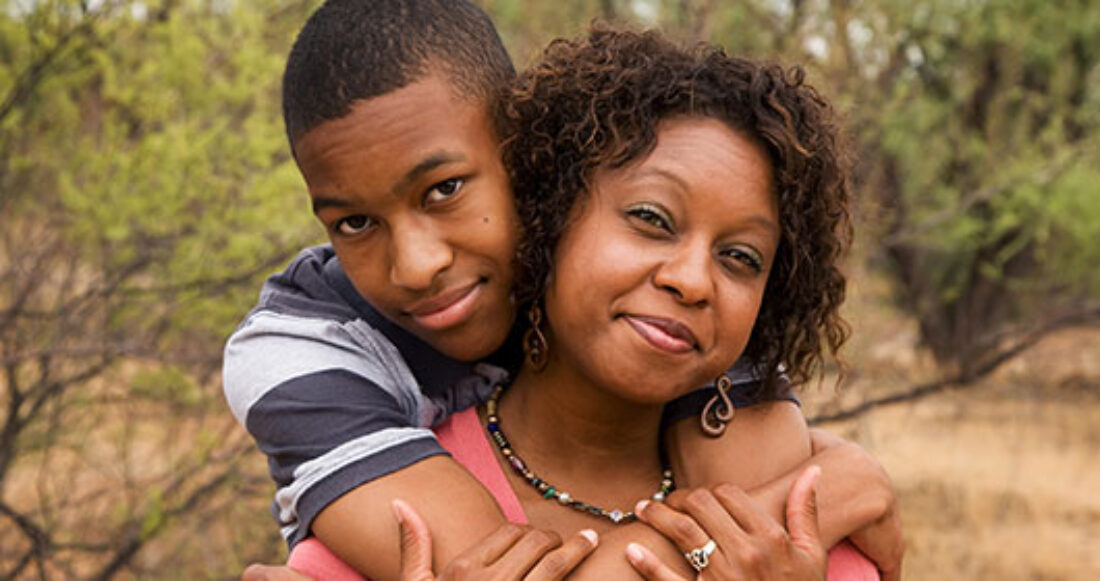A Resource for Strengthening Adoptive Families With Older Kids

Fourteen years ago, Jeanne Miranda brought home her newly adopted 7‑year-old daughter and 14-year-old son from Colombia. A psychologist who specializes in cognitive behavioral therapy, Miranda knew her children would need help working through the circumstances of their past and what it now meant for them to be part of her family.
She sought out therapists who could help. What she found instead was a glaring absence of good, skilled professionals who knew how to work with her older adopted children. From that need, Miranda developed a solution that the Casey Foundation is now helping to evaluate.
“There were agencies doing care, but as a parent, I was frustrated trying to get good care and finding that so many professionals didn’t know what they were doing,” recalls Miranda, a professor at the University of California at Los Angeles Department of Psychiatry and Biobehavioral Science.
Ten years after the adoption, Miranda found an opportunity to change the landscape in post-adoption care, especially for older children coming out of foster care. Working with UCLA’s TIES (Training, Intervention, Education and Services) for Families program, she began the process of creating a manual for a program they called ADAPT. In essence, it’s a series of modules that help adopted children and their families bond and integrate in a healthy way. The intervention targets older children adopted out of foster care and their families and addresses their unique challenges.
Simultaneously, Miranda and TIES wanted to create a program that could be replicated in different locations and whose efficacy could be measured. That’s where the Foundation became involved.
“We are interested in funding and increasing the supply of evidenced-based programming, particularly for gap populations for which evidence-based programs may not even exist,” says Cynthia Weaver, senior associate with Casey’s Evidence-Based Practice Group. “We want to increase the supply of tested, effective programs to keep kids from unnecessarily entering public programs — like child welfare and the juvenile justice system.”
The Foundation supported the first efforts to create a manual of practice for ADAPT and to systematize the collection of robust data. A prime opportunity came when the Children’s Home Society of North Carolina approached the developers in late 2016 in search of an effective post-adoptive program with evidence behind it. As North Carolina’s largest adoption and foster agency, Children’s Home Society implements post-adoption clinical services for half the state, including some of its most underserved areas in the Appalachia region. The North Carolina Department of Health and Human Services is paying the costs for Children’s Home Society to implement ADAPT.
“We were motivated purely by our desire to have an array of services that we could offer that could help with attachment and success in becoming a family,” says Kirby Morrow, a post-adoption clinical specialist for the agency and one of the eight trained in ADAPT. “You can help heal [a child’s] trauma, but you also need to help heal their ability to be part of a family.”
Half of the 16 therapists in the agency were trained in ADAPT’s modules of intervention; the other half serve as the control group for the study. Data collection will continue into next year. Once the research is completed, ADAPT will have the foundation to compete for much larger, substantial funding to further study the work and ultimately to create a program that can make a difference in the lives of older adopted children and their families.
“Numbers, that’s not something you can fake,” Morrow adds. “I have a lot of hope for these families. I believe in them and I believe in these kids, but what [ADAPT] has done here has been incredibly thoughtful.”
Learn how Casey is supporting evaluation of a hospital-based program to reduce violence






